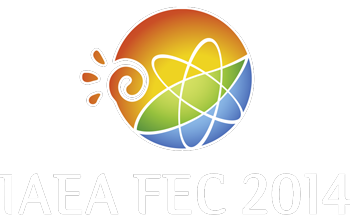Speaker
Dr
WON JAE CHOI
(NFRI(Nationl Fuson Research Institute))
Description
The importance of fundamental research for society and economic life has been underscored since the 1990’s. In addition to scientific advancements, many ‘big science’ institutes such as CERN also generate various types of economic and innovation benefits for their countries’ economies. The direct and corollary financial effects generated by procurement activity have been investigated in several studies by CERN. However, in relation to nuclear fusion, this has not been studied thus far near as much in any country’s fusion research institutes. Big science, referring to nuclear fusion and accelerators, shares the characteristics of requiring long-term and massive budget investments, human resources, and extreme technologies. In reality, such projects are often implemented through the formation of cooperative relations with small and medium businesses (SMBs) possessing outstanding technological capacities. On the other hand, the reality is that the entry of corporations into the business ecosystem of big science is not easy and that even those which have entered big science fail to find sales outlets for their developed technology following the supply of single items, thus leading to a situation in which their technological capacities lie idle. To enhance the ecosystem of Korean big science, we review the formation process of the business ecosystem of big science and propose a promotion model of a big science ecosystem in Korea.
Big science institutes are expected to play a critical role in the building of the technological competence of domestic industries, especially in developing countries. This study recommends a basis for more systemic cooperation between big science and industry, which would allow industry and new businesses based on new technology to work with and benefit from big science in a systematic manner, while also allowing big science to obtain the latest technologies and capable industrial partners at low cost. Consequently, the present study seeks to propose strategies for activating the business ecosystem of nuclear fusion and accelerators. It derives the four policy alternatives of approach, care, expansion, and infrastructure in accordance with the results of an empirical analysis to activate the business ecosystem of nuclear fusion and accelerators.
| Country or International Organisation | Korea, Republic of |
|---|---|
| Paper Number | SEE/P5-9 |
Author
Mr
Hyun Soo Tho
(NFRI(National Fusion Research Institute)
Co-authors
Dr
Hansoo CHANG
(National Fusion Research Institute)
Dr
WON JAE CHOI
(NFRI(Nationl Fuson Research Institute))
Dr
You Bean Kim
(National Fusion Research Institute (NFRI))

